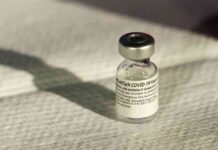Title: Top Addiction Researcher Retained by NIH Amid Uncertainty
Content: Get your daily dose of health and medicine every weekday with STAT’s free newsletter Morning Rounds. Sign up here.
Happy Thursday. I saw Lucy Dacus perform last night. What an evening!
Ok, on to the news.
Trump administration targets another scientific journal
Last week, STAT’s Anil Oza reported that the Trump administration had targeted a scientific journal for its editorial practices. That ire has now extended to one of the nation’s top medical journals, the New England Journal of Medicine.
The journal’s editor in chief, Eric Rubin, received a letter from the interim U.S. attorney for the District of Columbia in which the prosecutor asked six questions, largely about alleged bias in the decision to publish unspecified content. The strategy would be in line with Robert F. Kennedy Jr., who previously floated the idea of prosecuting journals, including NEJM, before taking office.
Experts who spoke with STAT about this issue suspect that more journals may have received such letters and worry they could have a chilling effect on academic journals and publishers. Read Anil’s scoop here.
Nora Volkow, shantay, you stay!
The nation’s top addiction researcher can breathe a sigh of relief — for now.
The director of the National Institutes of Health gave Nora Volkow a ringing endorsement this week at the Rx and Illicit Drug Summit in his first public remarks on the drug overdose crisis — a potential signal that her position as leader of the National Institute on Drug Abuse is secure.
While the Trump administration has never specifically called Volkow’s credentials or job security into question, Jay Bhattacharya’s remarks come at a time of deep uncertainty for the agency. The Trump administration has dismissed the directors of five of the NIH’s 27 institutes, often via reassignment to obscure roles in different federal agencies. It dismissed numerous senior officials in the director’s office, many of whom had served for at least a decade.
The indefatigable Lev Facher has the readout on Bhattacharya’s comments. Read the story here.
Good news for people with Lyme disease
As someone whose life was just upended by bed bugs, I needed this story about ticks and Lyme disease from STAT’s Elizabeth Cooney.
Lyme disease is tricky to study, tricky to treat and rapidly expanding its footprint in the United States. The hallmark chronic fatigue and brain fog of long-term Lyme disease or the joint pain of Lyme arthritis are a nightmare for the nearly 1,200 people in the U.S. who develop the disease every day.
Two new research papers published Wednesday may offer better recognition and potentially lead to alternative treatment choices. Some cool science going on here, including how sugar carried by the ticks keeps the immune system on red alert. For further nuggets and coverage of the studies, read the story.
Drug curbs youth vaping
A new trial conducted at Massachusetts General Hospital found that pairing a drug with behavioral treatments can curb nicotine cravings and withdrawal symptoms and help young people quit e-cigarettes.
The study was fairly small, only 254 people, but 28% of people in the varenicline group were still vape-free after six months, compared to 7% of the placebo group. Vaping rates among high school students have fallen from their Juul-era height, but a 2024 survey found that 7.8% of that group reported using e-cigarettes in the past 30 days.
While the Food and Drug Administration approved varenicline for treating nicotine addiction in 2006, this trial is the first to examine its efficacy as a vaping cessation medication. The findings could have significant implications for how pediatricians and school health care providers treat nicotine addiction. Sarah Todd has more.
Cutting newborn screening is a dangerous mistake
“I got a blood test as a newborn that changed the course of my life forever,” writes Lillian Isabella, a playwright and producer in New York City.
The test, part of newborn screening performed on babies across the U.S., led to her being diagnosed with a rare inherited disorder. She avoided intellectual disability and other symptoms such as seizures because of early diagnosis and treatment.
The federal government’s decision to cut the Advisory Committee on Heritable Disorders in Newborns and Children will risk the preventable death and suffering of children with rare conditions. The committee should be reinstated, Isabella writes. Read the rest of her op-ed here.
What we’re reading
• HHS Plans to Cut the National Suicide Hotline’s Program for LGBTQ Youth, Mother Jones
• MAGA world signals it will protect Medicaid, Axios
• Dr. Warren Hern closes Boulder Abortion Clinic after 50 years, Denver Post
• Eli Lilly opens a new legal front in its battle against compounded GLP-1s, STAT
• Cutting federal Medicaid expansion funding could lead to 30K additional deaths: Analysis, The Hill

















